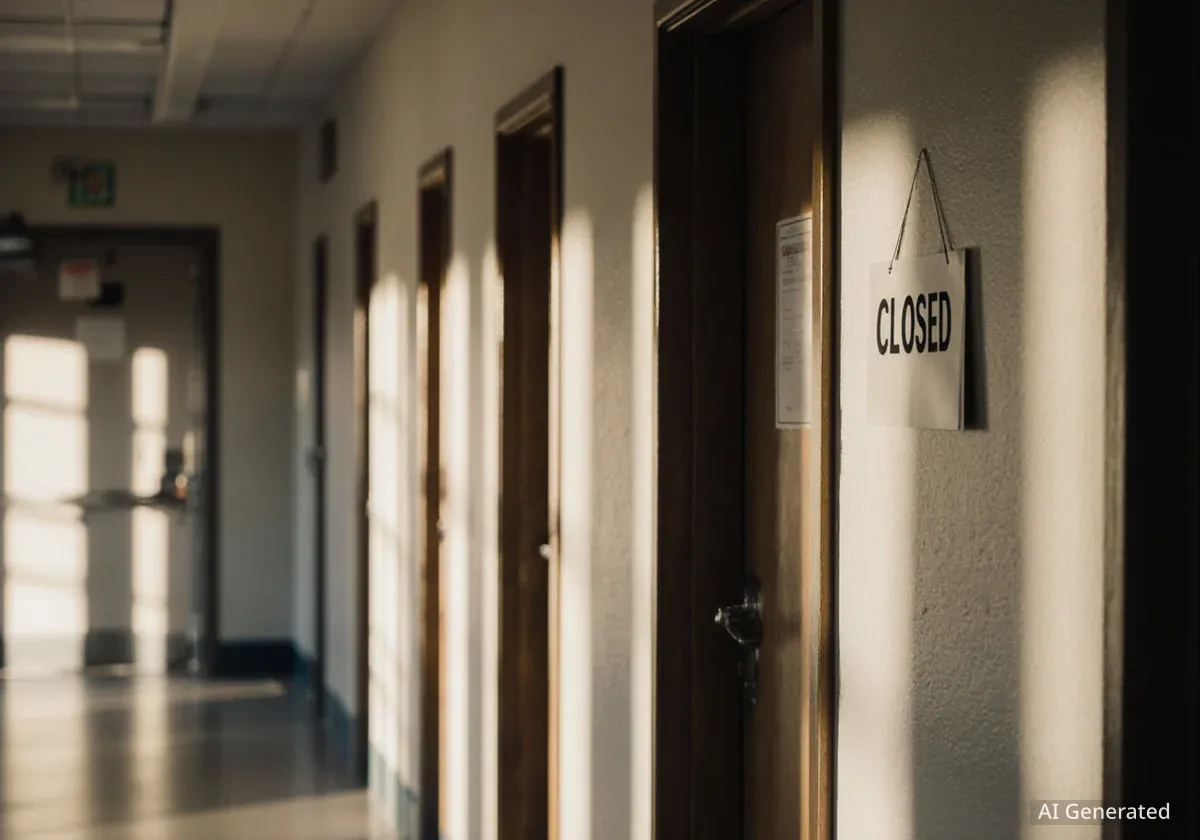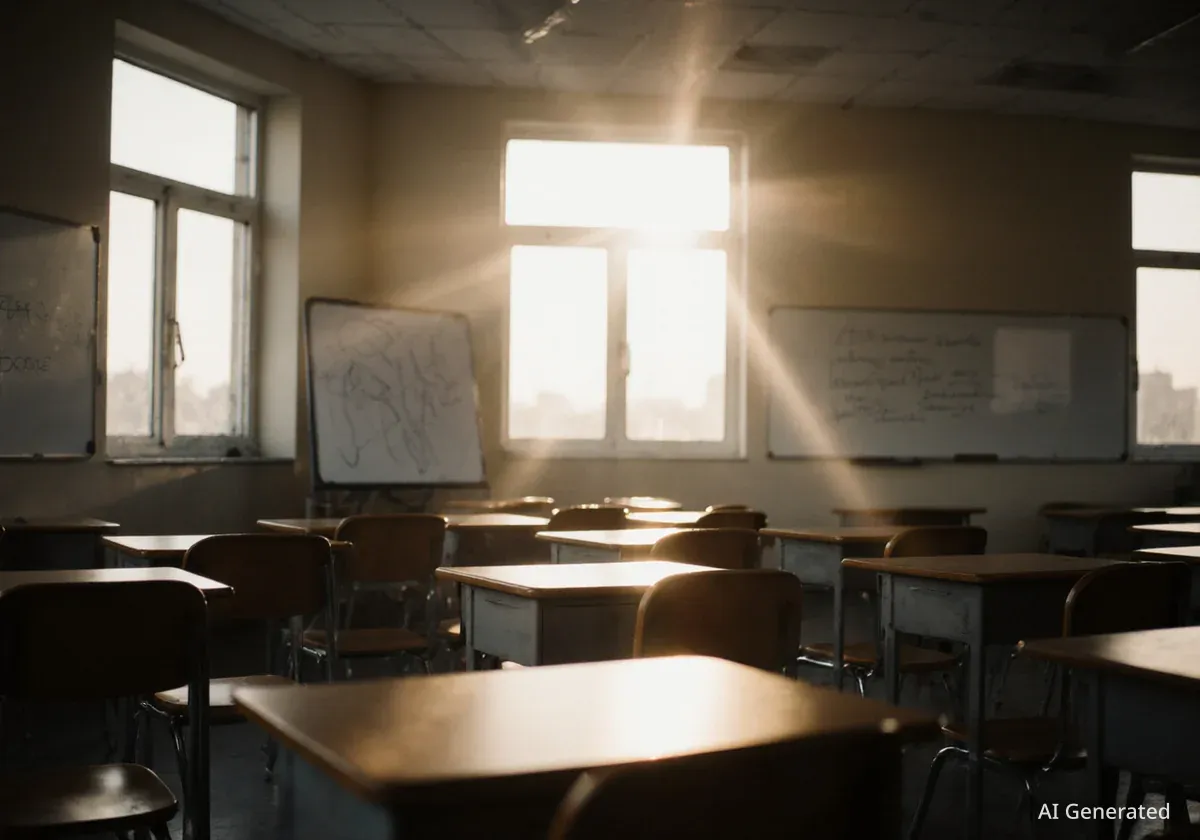A small college nestled in New York's Adirondack Mountains has reported a significant 30 percent increase in new student enrollment this fall. The institution, Paul Smith’s College, attributes this growth to a curriculum focused on careers considered resilient to automation and artificial intelligence, such as forestry, environmental science, and hospitality.
As concerns grow among young people about the impact of AI on the job market, this trend suggests a potential shift in educational priorities towards hands-on, experience-based professions that require human judgment and physical presence.
Key Takeaways
- Paul Smith’s College in New York saw a 30% increase in new student enrollment this fall.
- The college focuses on “AI-resilient” degrees like forestry, wildlife science, and hospitality.
- This growth aligns with national surveys showing Gen Z's anxiety about AI's impact on job security.
- The curriculum emphasizes hands-on skills, which college officials say prepares graduates for unpredictable, real-world challenges.
A Generation's Anxiety Over Automation
The rise of advanced artificial intelligence has created a wave of uncertainty across the global workforce, particularly for those just beginning their careers. Recent studies reflect a deep-seated concern among Generation Z about their future job prospects in an increasingly automated world.
This apprehension is not without basis. The capabilities of AI are expanding rapidly, touching fields once thought to be exclusively human domains. This has led many to question the long-term value of traditional career paths.
Gen Z by the Numbers
According to a survey by Glassdoor, 70 percent of Gen Z members report that artificial intelligence has made them doubt their future job security. A separate poll found that 65 percent of respondents believe even a college degree is no longer sufficient protection against an AI-driven replacement in the workforce.
While some government officials have urged Americans to adapt by learning AI skills, a different strategy is taking root in higher education, one that focuses on leveraging uniquely human abilities rather than competing with machines.
A Different Path in the Adirondacks
Paul Smith’s College, situated within a six-million-acre wilderness area, has long centered its programs on land-based and practical occupations. This historical focus has now positioned it as a leader in what it calls “AI-resilient” education. Kathy Bonavist, the executive vice president of Advancement & Enrollment, explained that the college is leaning into this identity.
“Paul Smith's been around since 1946, and one might argue that we've always been relatively AI-proof,” Bonavist stated. “Now, we're just doubling down on it.”
The college's programs, including arboriculture, culinary arts, and environmental science, are built on a foundation of experiential learning. This approach aims to equip students for complex situations where technology alone is insufficient.
“Our education is based on calloused hands and sharp minds,” Bonavist added. “We prepare graduates for the messy, unpredictable places where human judgment still really matters.”
Hands-On Learning in a Digital World
The educational philosophy at Paul Smith's is not about rejecting technology, but about building resilience to its disruptive effects. Bonavist describes the approach as being “AI-resilient” rather than “AI-resistant.” The college acknowledges that AI will play a role even in outdoor-focused jobs and is actively exploring how to integrate the technology appropriately.
However, the core of the curriculum remains tangible and experience-driven. Students don't just learn theory; they actively participate in the work they are studying.
From Classroom Theory to Real-World Practice
At Paul Smith's, learning extends far beyond the lecture hall. According to Bonavist, students “show up at five a.m. to start in the kitchen. They show up in the forest to manage the land and run the large equipment.” This direct engagement ensures they develop practical skills and a work ethic that cannot be replicated by an algorithm.
This method ensures that graduates possess skills that are difficult, if not impossible, to automate. The ability to assess a unique forest environment, manage a dynamic kitchen, or solve problems in the field relies on a combination of sensory input, critical thinking, and physical dexterity that AI currently lacks.
Student Perspectives on an AI-Proof Future
The students themselves recognize the unique value of their education. Gavin Tufo, a sophomore studying Arboriculture and Landscape Management, highlighted the limitations of AI in his chosen field.
“AI has its place in the forestry industry, whether it's in a machine or on a computer. What AI doesn’t have is the human eye and mind,” Tufo explained. “No single tree is the same; no conditions or ground environment are exactly the same. There are several factors that we have been taught and trained to assess and understand that AI cannot simply comprehend.”
Another student, Liam Carroll, was initially drawn to the college by his love for the outdoors. However, as he has watched AI become more prominent in society, he has found a new appreciation for his career choice.
“I now feel relieved that the jobs that I could get with my degree are going to be one of the last things that AI could replace, if at all,” Carroll said. He believes the world will always need people who can work directly with the environment, collecting data and performing essential tasks like timber management.
A Broader Trend Toward Skilled Trades
The success of Paul Smith’s College appears to be part of a larger national trend. As AI threatens to automate many entry-level white-collar jobs, young people are increasingly looking toward careers in skilled trades.
- A recent survey by Jobber found that 77 percent of Gen Z believe it is important to choose a career that is difficult to automate.
- A majority of respondents in that survey identified trades like carpentry and plumbing as largely future-proof.
- In contrast, fields such as software development, data analytics, and accounting were seen as more vulnerable to automation.
The growing appeal of a hands-on education underscores a fundamental question for today's students and workers: in an age of intelligent machines, what does it mean to be indispensable? For a growing number, the answer lies not in competing with AI, but in mastering the skills that remain uniquely human.





